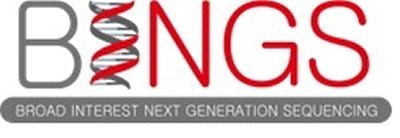Next Generation Sequencing Symposium

On 7th May, 150 delegates attended the University's 5th Next Generation Sequencing (NGS) Symposium hosted at the Southampton General Hospital campus. This whole-day meeting brought together scientists from across the Wessex region, from a wide range of fields, with an interest in using the latest DNA sequencing technologies.
The interdisciplinary programme included presenters from the NHS, Public Health England, as well as from across the University of Southampton. Topics ranged from chemistry-based method development, to the current progress towards translating genomics into routine NHS healthcare.
The plenary talk from Dr Michael Simpson (King’s College London) discussed some of the exciting opportunities that the current project to sequence 100,000 genomes for healthcare in the UK will lead to.
As part of the programme, early career researcher delegates were invited to apply for the Institute for Life Sciences (IfLS) sponsored prize of £2,500 for NGS research. The IfLS prize money was offered to support our participation in the BBSRC Excellence with Impact programme. Preliminary applications were shortlisted, with six of the shortlisted applicants having just two minutes to pitch their proposal. The audience chose Dr Chantal Hargreaves, a post-doctoral researcher in Cancer Sciences, FM as the winner. Her project was entitled “Application of long-read single-molecule sequencing to remap the human Fc gamma receptor (FcγR) gene locus”. She will present her results at the 6th NGS Symposium next year.
What's related
Links to external websites
The University cannot accept responsibility for external websites.
Winning this competition is a fantastic opportunity and the prize money will be used to develop cutting-edge DNA sequencing approaches to understand how certain genes can affect how our immune system both prevents and causes disease.
It was great to hear of the diverse applications of NGS technology used by regional experts to study global problems. From the Arctic to Africa, studying Ebola, aubergines and chickens. And all this with a great clinical backdrop of our recent success in securing the Wessex Genomics Medicine Centre and being selected as a preferred provider of the Master of Genomic Medicine to support the Genomics England initiative. An exciting year ahead!